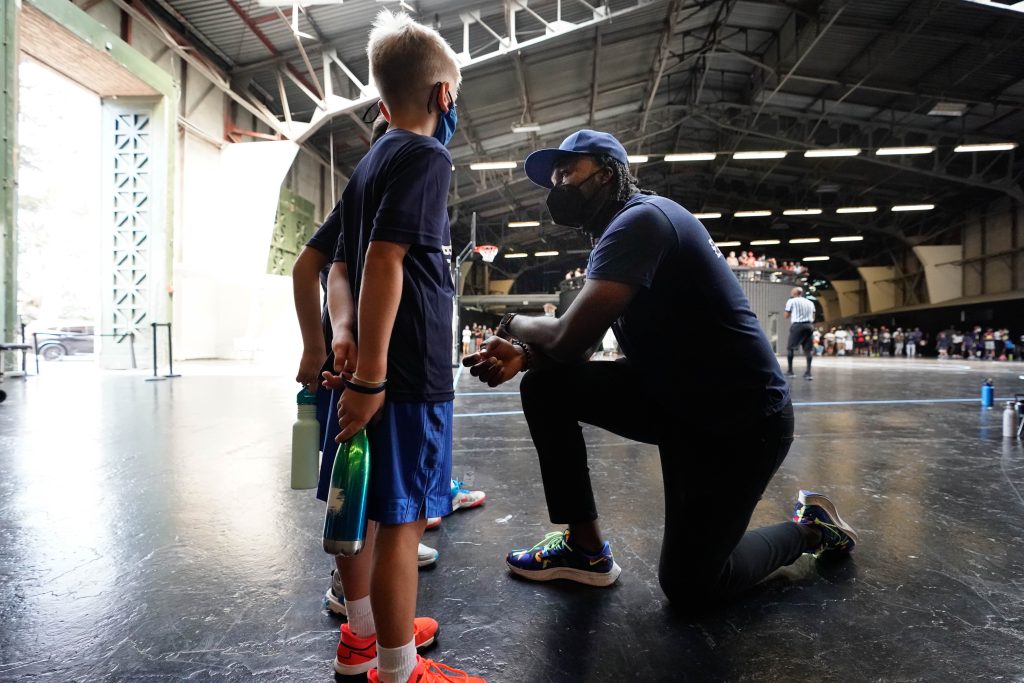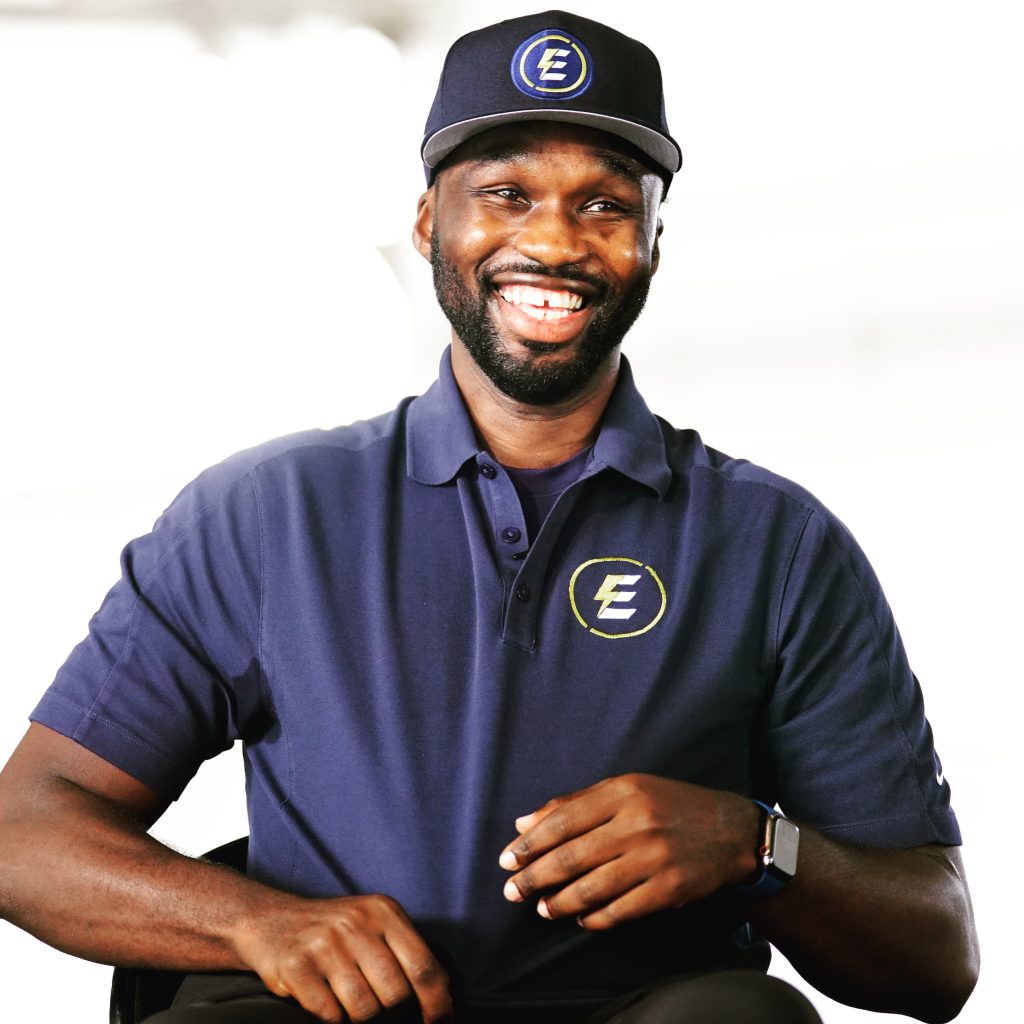Coach Jerome Gumbs is a former collegiate and professional basketball player and the founder of Empower Me Academy (EMA). Founded in 2013, EMA is a social business enterprise that teaches fundamental basketball skills and concepts combined with leadership development training.
By Coach Jerome Gumbs
According to the National Council of Youth Sports (NCYS), 60 million children and teens participate in organized sports each year. Even though the benefits of youth sports are well known, kids are overworked. They are constantly training and sometimes competing year-round in multiple leagues – it’s a demanding and overwhelming schedule.
Not surprisingly, by age 13, 70% of young people quit participating in sports altogether. NCYS found that most student-athletes walk away from competitive sports for various reasons, including the fact that they’re no longer having fun, consider their coaches to be ineffective, and are forced to play by overbearing parents. Sometimes, they can’t afford to play all the required games.

Another factor that can’t be ignored is the toxic competitive environment that makes everything about losing or winning, no matter how hard student-athletes try. Today, youth sports are more professionalized than professional sports. As this culture continues to spread, we forget that first and foremost, a sport is an activity in which an individual or a team competes against another for entertainment purposes. While students develop their athletic skills, the fundamental values they learn during their most formidable years will prepare them for life.
Changing the narrative
I have played collegiate and professional basketball for over 10 years in Europe and the U.S. and have worked with more than 20 coaches throughout my career. Many were not supportive, positive, or truly saw me as a human being. Ultimately, I was either in or out, good or bad, in great shape or a failure. To experience firsthand how harmful this culture can be and to see it happening in youth leagues fuels my passion for changing the narrative and creating a healthy mindset. I went from having the most confidence to being suicidal. We all want our children to be the best they can be, and it’s easy to get caught up in the competitive sports culture, but we should remember there’s more than winning. Like, becoming our best version.
When I founded Empower Me Academy (EMA), a nonprofit in San Francisco, there was one clear goal: change the world by giving back to the community and offer comprehensive athletic excellence and leadership programs to develop well-rounded adults who can succeed and be impactful in all aspects of life. Of course, I want my students to be the best players; but I want them to be even better people.
Mindful parenting/caregiving is one of the tools modeled in my life and EMA. It empowers parents and caregivers while navigating a child’s sports journey with the ongoing intention of staying present and being aware without distractions, emotions, or thoughts about the past or the future. What matters is the here and now.
To be a parent or caregiver mindfully is a conscious choice, something we, parents, can do by being present, paying attention, and getting involved with what counts.
Time management, managing expectations, attitude, and embracing mistakes are the core elements that prepared me to be a mindful parent and coach, and I want to share more about them with you.
Time management
Time management is key for kids to succeed in all aspects of life. I had the opportunity to learn the value of time management when I was playing collegiate basketball, and I understood how it could make a difference during a kid’s sports journey. If you don’t dedicate time to it, there’s no way of being successful in anything. But should your kid’s life be a loop of practice-game-school-homework? The trick is learning to prioritize and keeping awareness that life is about balance.
Children aren’t taught this because we as parents are learning to work on it too. At EMA, we often see students overscheduled with so many activities that they don’t have time for the little things they enjoy. It may become overwhelming and stressful and lead them to give up as soon as they are old enough to do so. If parents or caregivers can teach this to children at a young age, they will be set up to achieve their goals – on and off the court.
Expectations management
It is common to see parents on the side of the pool, the court, or the field pressuring children and expressing frustration when their kid’s team doesn’t win. Another situation we often see is families unable to gather for dinner or spend weekends together because their kids are practicing or competing, and adults drive them around trying to cover a busy schedule (remember, time management).
If you are experiencing these situations, an important question is: is this the child’s desire or someone else’s expectation? Not everyone will become a Stephen Curry, but this shouldn’t take the joy out of sports or discourage kids from playing. When will you have time to be a family? When will your child have the opportunity to be a child?
Supporting children during their sports journey as mindful parents means managing expectations. Instead of pressuring and prioritizing what we want as parents, we should focus on guiding kids to understand that it is OK not to be superstars and let children be children. As parents, we directly impact the success of our children’s development process experience, which is predicated on the type of involvement and actions we exhibit.
Avoid comparing – every child is different so is their development in many areas of life. Have patience and trust the process. Let kids take pleasure in the games they play.
Learning to embrace mistakes
Mistakes happen in all sports and life. Encouraging children to commit them when they are pushing their boundaries, as opposed to being paralyzed by fear, is a powerful instrument to help them build resilience.
It is sad to see young players in action trying to give their best and at the same time worried about making mistakes because of what the result might be, what people will think of them, or how their coach and parents will react. Mindful parenting includes recognizing and showing that errors are bound to happen, especially when working past your comfort zone and trying something new or different.
We cultivate a mindset amongst our community to embrace mistakes as learning opportunities for growth. It shows us, parents, ways to embrace the new and the unknown as life is constantly moving. Being comfortable when making errors and moving past them empowers kids to pursue more learning and improvement in sports, school, home, family, friends, etc. Mistakes fuel change, development, and growth.

Attitude
I am always telling students that we cannot control all aspects of our lives – instead, we must learn to focus on things we can control and consciously be prepared and choose. Two of the most important things are attitude and effort.
We may all wish, but not every player can be 7 feet tall and highly skilled. However, everyone can be positive, grateful, and energetic. It’s just a matter of choice.
As parents, we fall into the trap of wanting our children to be happy by showering them with gifts and accolades. We often protect them from the natural results of their actions and try to prevent pain or unhappiness. Doing it may take away a great character development opportunity: the ability to make decisions and live with the consequences.



















